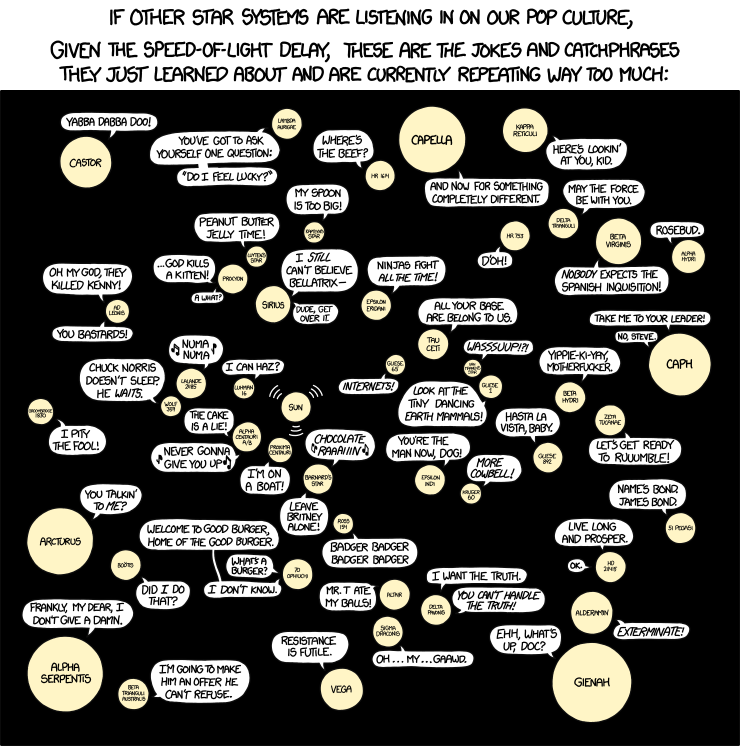The Trouble With Science And Magic
I love writing science fiction and fantasy. From far flung space opera to a little magical realism at the corner store, the endless possibilities of the genre call to my sense of the absurd and my boundless hope for the future.
But if you decide to write science fiction and fantasy, there are few extra things to keep in mind about the genre. It may seem like these types of fiction are so far out of the ordinary that writers can just make up any old thing and get away with it. But that’s not strictly true. To make a story compelling, full of conflict, and relevant, these three things (at minimum) must be adhered to:
 |
| XKCD is a funny comic. |
Science and magic must be a hindrance to your characters. Like any good story, science fiction and fantasy plots revolve around conflict. And your conflict is enhanced by the fact that what we readers think of as cool or time-saving should be anything but for your characters. Just as a good sex scene makes a relationship between your characters more complicated, science and magic will never, ever be helpful when they need it to be. Technology will break or work counter to how they believe it should. Magic will be unreliable or magical creatures tricky and unpredictable. Your character will have to triumph despite having the so-called advantage of a rocket ship or a magic wand.
Take Harry Potter, for example. In his second year at Hogwarts, Ron’s wand is snapped during a run in with the Whomping Willow. As a result, every time he tries a spell, it backfires spectacularly on him. When he tries to hex Draco for calling Hermione a mudblood, instead Ron gets hit by the spell and spends the rest of the night coughing up slugs.
 |
| XKCD knows science fiction and fantasy. |
Giving something a weird name doesn’t make it magical or alien. There’s an old saying:”if it walks like a duck, looks like a duck, and quacks like a duck, it’s a duck”. This is doubly true in science fiction and fantasy. If it walks like a human, looks like a human, talks like a human, eats like a human, clothes itself like a human, and lives like a human, then it doesn’t matter how many apostrophes you put in its name, it is NOT an alien nor an orc. This is why world-building is so essential in good science fiction and fantasy. You must create not only a new character, but an entirely new society, a new world, and a new culture for that character to have grown up in and be shaped by. All their decisions, all their ideas of right and wrong, all their preconceptions about others, all their food, all their clothes, and all their modes of transportation should be colored by their life in this different place.
 |
| XKCD hits a little too close to home. |
[adinserter name=”Amazon”]
